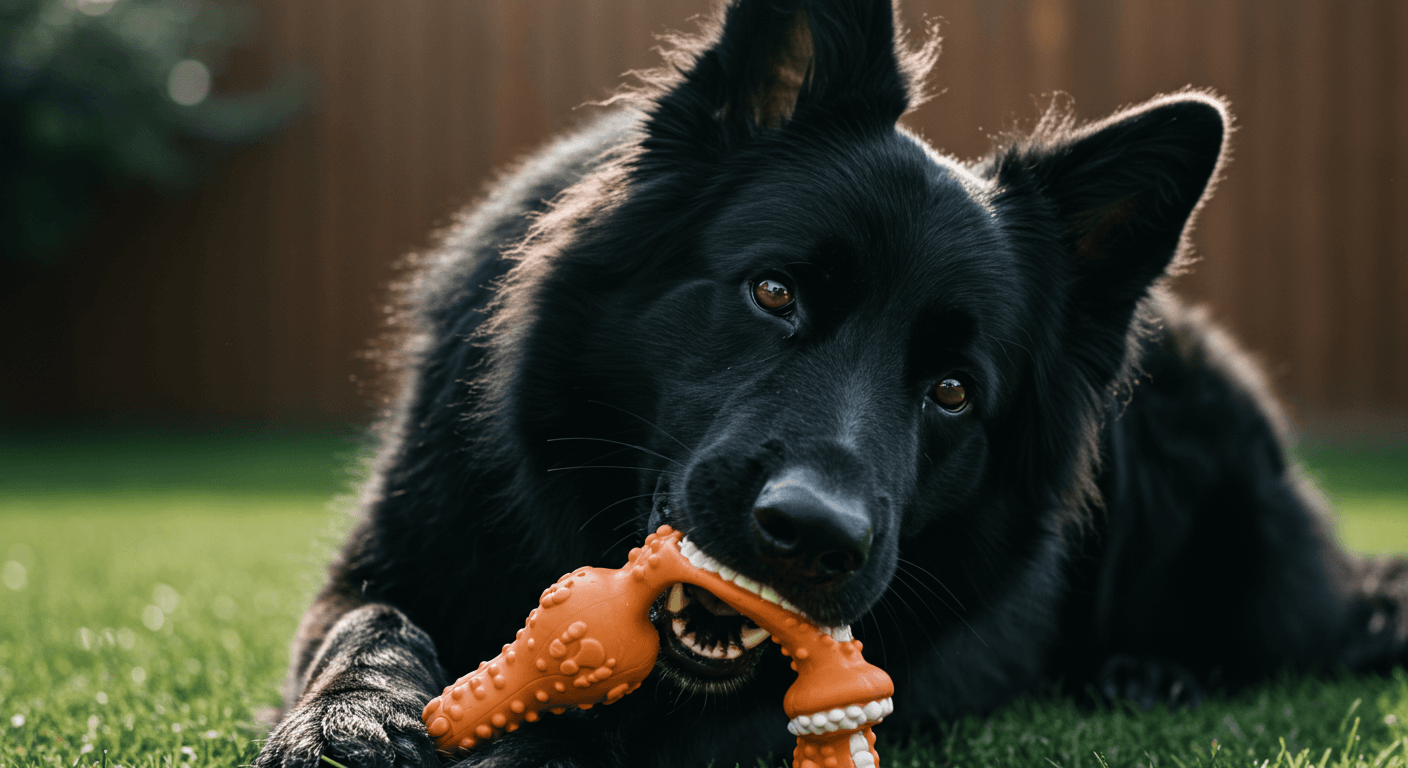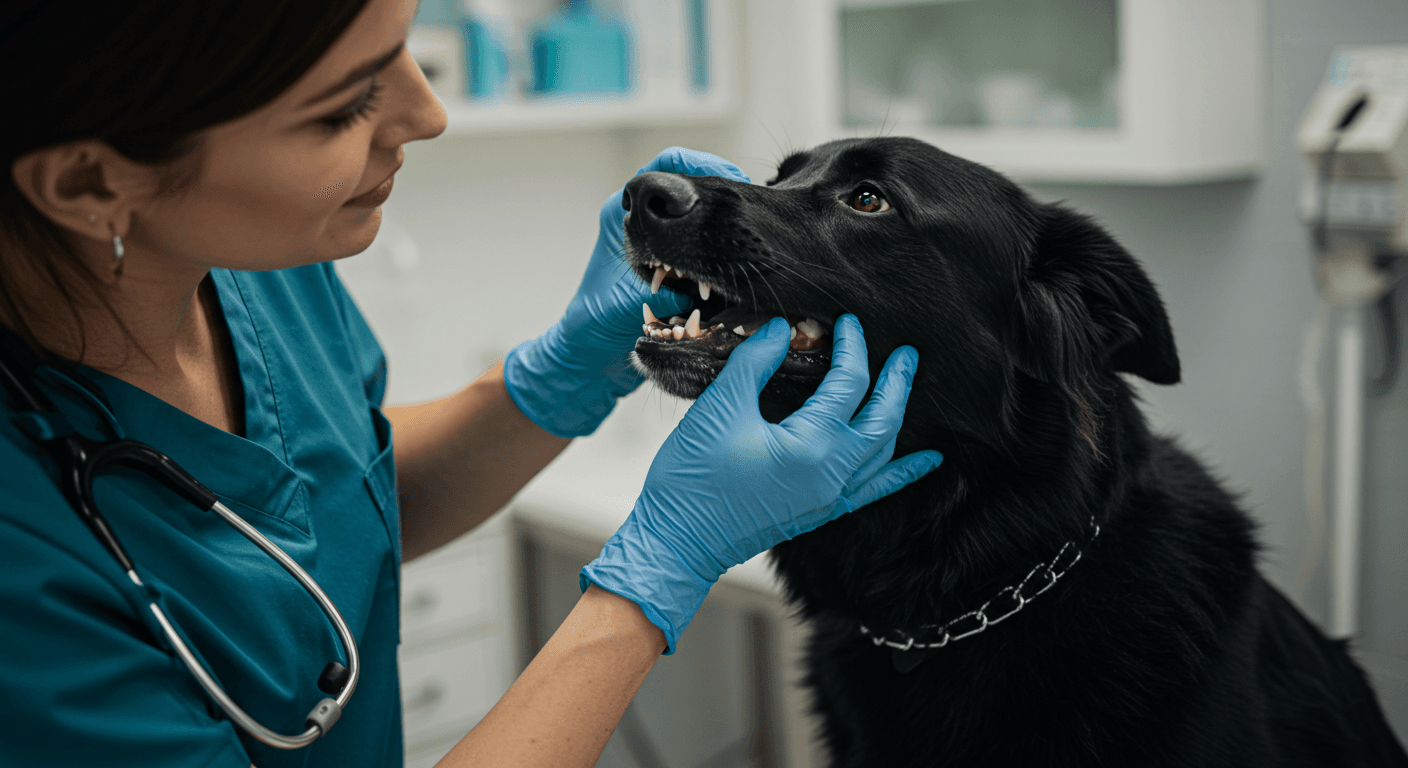If you’re a proud German Shepherd parent, you already know how important health is to your furry friend. But have you ever stopped to think about your German Shepherd’s teeth? Just like humans, dogs need regular dental care to stay truly healthy and happy.
Your German Shepherd’s mouth is more than just a place for play time and treats it’s a window into their overall well-being. Taking care of your GSD’s teeth helps prevent more serious health problems down the line, including gum disease, infections, and even issues with the heart or kidneys.
In this ultimate guide, we're going to explore absolutely everything you need to know about German Shepherd teeth. Whether you're a first-time owner or a seasoned GSD lover, you'll find helpful tips, easy-to-follow advice, and expert-backed information to keep those pearly whites shining.
From good brushing habits to understanding warning signs of dental trouble, this guide is packed with practical steps made just for German Shepherd owners. After all, a healthy smile leads to a happy dog!
Let’s get started on the journey to better GSD teeth your loyal companion is counting on you!
Understanding German Shepherd Teeth Structure

If you’re a proud German Shepherd owner, you already know how amazing and loyal these dogs are. But have you ever taken a good look inside your GSD’s mouth? Understanding your dog’s teeth is a big part of keeping them healthy and happy. When it comes to GSD teeth, there’s a lot more going on than just a wagging tongue and a pair of chompers!
German Shepherds typically have 42 adult teeth just like most dog breeds. These include different types of teeth: incisors, canines, premolars, and molars. Each type has its own job. For example, the pointy canine teeth help with grabbing and holding. Incisors are for nibbling and grooming, and the strong flat molars help crush food.
Your German Shepherd’s mouth is designed for both eating and working. Since these dogs were bred for herding and protective jobs, their teeth play a key role in their daily activities. That unique tooth layout explains why German Shepherds’ teeth are so strong and useful both for chewing toys and sniffing out treats!
Wondering why German Shepherds’ teeth matter so much? Because problems like tartar buildup, broken teeth, or infections can cause pain and even affect their behavior. Knowing what healthy GSD teeth should look like helps you spot trouble before it gets serious.
If you're ever unsure, a German Shepherd teeth diagram or a quick peek into your pup's mouth can help you see what’s normal and what’s off. Just like with kids, a little care goes a long way with your dog’s dental health.
Teething Timeline: From Puppy to Adult Teeth

Watching your German Shepherd grow is exciting, and their teething journey is a big part of that. From tiny baby teeth to strong adult chompers, their mouth goes through a lot of changes. Understanding this timeline helps you care for their teeth better and keep them happy through every stage.
German Shepherd puppy teeth start to show around 3 weeks of age. These baby teeth, also called milk teeth, are sharp and tiny. Puppies use them to explore the world including a lot of chewing! But don’t worry, this stage won’t last forever.
So, when do German Shepherds lose their baby teeth? Most GSD puppies begin losing them around 12 to 16 weeks old. You may notice small teeth on the floor or in toys. By six months, almost all baby teeth have fallen out.
Now, here comes the big question when do German Shepherds stop teething? Most GSDs finish teething by the age of 6 to 8 months. By this time, they should have a full set of 42 strong adult teeth, ready for a lifetime of chewing and playing.
Throughout this journey, your puppy may feel uncomfortable and want to chew everything. That’s normal! It helps their adult teeth come in just right. Giving them proper chew toys during this time is super important to keep their gums healthy and your furniture safe.
Knowing this timeline can make life easier for both you and your pup. With the right care, your German Shepherd can grow up with strong and shiny teeth that last a lifetime.
GSD Puppy Teeth vs Adult Teeth: Key Differences
Watching your German Shepherd grow from a playful pup into a strong adult is exciting, but it comes with big changes especially when it comes to their teeth. Knowing the difference between German Shepherd puppy teeth and adult teeth helps you care for your dog through every stage of life.
German Shepherd puppies, just like human babies, start with baby teeth. These baby teeth also called milk teeth are small, sharp, and delicate. Puppies typically start getting these teeth at around 3 weeks old. By the time they're 8 weeks old, they should have all 28 of their baby teeth in place.
The next stage in the journey of German Shepherd teeth starts when these baby teeth begin to fall out. So, when do German Shepherds lose their baby teeth? Most GSD puppies start losing their baby teeth around 12 to 16 weeks of age. During this time, they’ll chew on everything in sight to soothe their gums. By 6 to 7 months old, your German Shepherd should have developed a full set of adult teeth 42 in total!
Here’s a quick breakdown to help you understand the differences between GSD teeth in the puppy and adult stages:
- Number of Teeth: Puppies have 28 teeth; adults have 42.
- Size and Strength: Puppy teeth are tiny and sharp while adult teeth are bigger and much stronger.
- Use: Puppy teeth are mainly for learning and gentle play. Adult teeth are made for harder tasks like chewing bones or toys.
- Gum Sensitivity: Puppies often experience sore gums during teething, while adults have tougher gums.
As your dog grows, it’s important to support their dental health every step of the way. From teething toys for GSD puppies to regular brushing for adult dogs, healthy teeth start early!
How to Care for Your German Shepherd's Teeth

Taking care of your German Shepherd’s teeth is just as important as feeding them a healthy diet or giving them daily exercise. Good dental care keeps your dog happy, avoids painful problems, and can even help them live longer. When a German Shepherd’s mouth is healthy, they can chew food easily, enjoy playtime with their favorite toys, and stay active without discomfort.
Many dog owners don’t realize that bad breath, swollen gums, or tartar buildup are signs that their German Shepherd’s teeth need attention. Thankfully, you don’t need to be a vet to help your GSD keep a clean and healthy smile. With a few simple daily habits and regular checkups, your dog’s mouth can stay fresh and strong for years.
To properly care for your German Shepherd’s teeth, it’s important to be consistent. Just like humans, dogs need routine dental care to avoid problems like gum disease or tooth loss. Below are some easy and useful ways to care for GSD teeth and keep their mouth in top shape.
- Brush Their Teeth Regularly – Use a dog-friendly toothbrush and toothpaste, and aim for at least a few times a week.
- Give Dental Chews and Toys – These help scrape off plaque naturally as your GSD chews and plays.
- Check Their Teeth Often – Look for signs of redness, bad breath, or food stuck between teeth.
- Visit the Vet for Cleanings – A vet can give deep cleanings and catch small problems before they grow.
- Provide a Good Diet – Crunchy kibble and special dental foods can help clean teeth while your dog eats.
By focusing on dental health, you’re not just preventing bad breath you’re also giving your German Shepherd a better life. Healthy teeth mean a happy, active pup who's ready to run, play, and smile every day.
Brushing Your German Shepherd Dog's Teeth
Common Dental Problems in German Shepherds
German Shepherd teeth are strong and made for active chewing, but just like ours, they can face dental problems too. It’s important for every German Shepherd owner to understand what signs to look for so they can keep their dog’s mouth healthy and pain-free.
One common issue often noticed is "German Shepherd canine teeth flat" in appearance. Normally, canine teeth should be pointed that’s how dogs grip their toys and food. If your GSD's canines look flat or worn down, it could be a sign of dental wear from too much chewing on hard toys or even from misalignment. This can lead to tooth pain, infections, or trouble eating.
Here are some of the most common dental problems seen in GSDs:
- Worn Down Teeth: Especially the canine teeth, which can appear flat due to overuse or misaligned bite.
- Tartar and Plaque Buildup: A yellow or brown coating that can lead to gum disease.
- Gingivitis: Red, swollen gums that bleed easily, which can be painful for your pup.
- Broken Teeth: Caused by chewing on very hard objects like bones or rocks.
- Bad Breath: Often a sign of tooth decay or gum problems lurking below the surface.
Ignoring GSD teeth issues can lead to big problems later on. Painful infections, loss of appetite, or even damage to other organs may occur if bacteria from the mouth travels through the body.
If you notice your German Shepherd's canine teeth are flat or any unusual signs in their mouth, it’s best to check with your vet. Catching these problems early means easier treatment and a happier dog overall.
Taking care of your German Shepherd's teeth isn't just about a shiny smile it's key to their overall well-being. Healthy teeth mean a healthy mouth, and that leads to a happier, more energetic dog. With proper care, your GSD can enjoy chewing, playing, and living without tooth pain or gum problems.
Now that you've learned how important German Shepherd teeth are, you know the habits that can make a big difference. Simple steps like brushing regularly, offering dental-friendly toys and treats, and scheduling vet checkups will help keep your German Shepherd's mouth clean and strong.
Remember, GSD teeth need regular attention starting from puppyhood through senior years. If you spot signs of trouble like bad breath, yellow teeth, or drooling, don’t wait to act. Early care keeps big problems (and dental bills!) away.
Your German Shepherd depends on you, not just for walks and belly rubs, but also for keeping their teeth and mouth healthy. With love, patience, and the easy tips in this guide, your dog can flash those strong, white teeth for years to come.



